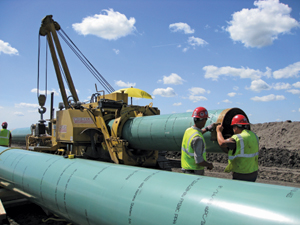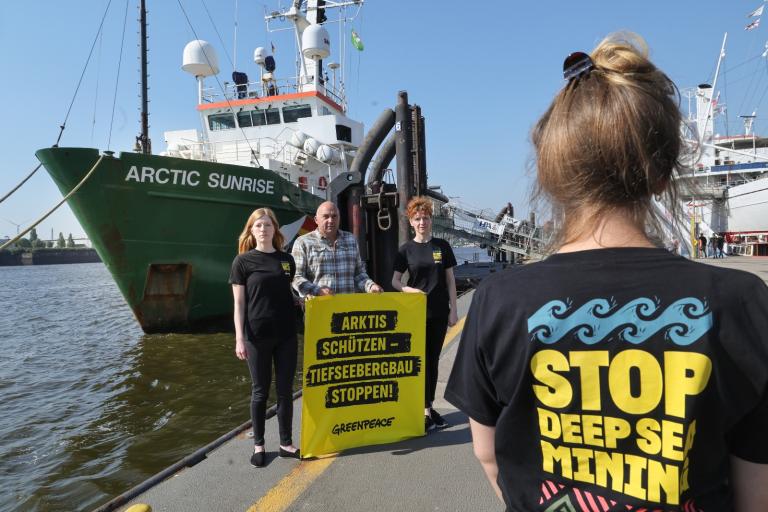Obama is poised to reject Keystone XL this afternoon, so brace for a lot of Republican bellyaching about how he obviously doesn’t care about jobs. There is a problem with this line of argument, and it’s that it is nonsense. Don’t believe us? Check out this graph, from ThinkProgress, which shows how Obama administration policies like the much-maligned loan guarantee program and the EPA toxic pollution rule will create many, many more jobs than Keystone construction:

The estimate TP uses for the Keystone jobs is on the low end of the estimates out there, but it’s also derived from one of the only independent studies on the question. The study’s authors have also made their methodology transparent, which isn’t the case for some of those studies predicting hundreds of thousands of jobs.
Plus, the jobs that Keystone will create may not benefit the counties that are bearing the environmental risk of hosting a pipeline full of oil. Inside Climate News points out that of the 67 counties that have a piece of the pipeline, only six have an unemployment rate at or above the national rate of 8.7 percent. Now, to be fair, that’s a dismal unemployment rate. But in Montana, South Dakota and Nebraska, pipeline counties’ unemployment rates are down in the 2-4 precent range. (In Oklahoma and Texas, they’re higher.) They’re not in such desperate need of jobs that they have to flirt with environmental destruction.
ICN also gathers some anecdotes about the lack of jobs for local workers:Dan Holub, a Marion County, Kan. commissioner, said the project did little for his constituents. “They promised us all kinds of jobs. And when it came down to construction, they were all union jobs.”
Local truckers and heavy equipment operators were turned away because they didn’t belong to a union, Holub said. … She and her husband know of only three people in their two-county region who were hired for the project….
The Andersons’ neighbor Kent Moeckly said the construction workers drove cars with license plates from Arkansas, Wisconsin, Kentucky, Minnesota and Florida—”everywhere but here.”
“I’d say 95% of the [workers] were from out of state,” Raymond Anderson said.
Granted, in this economy, jobs are jobs are jobs. But there’s better ways to create them, both for all U.S. workers and for these local communities.



